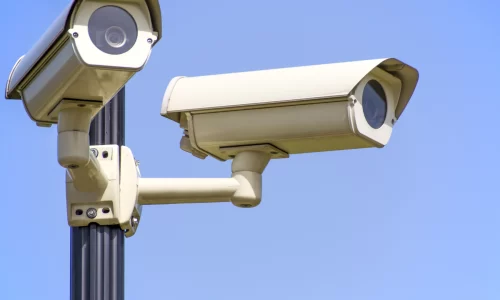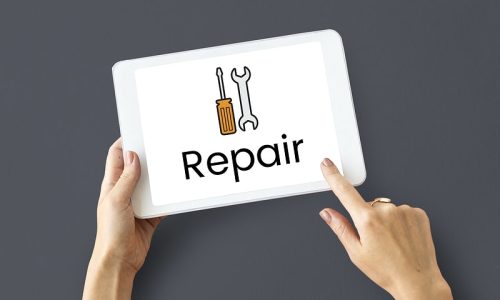Understanding and fulfilling your HOA security responsibilities are crucial for maintaining community safety. Board members, residents, and managers should all be aware of rules and best practices. In this article, we’ll cover a range of proactive tasks that board members should take to ensure diligent security management. As safety becomes increasingly critical, understanding these responsibilities enables you to effectively handle emergencies, mitigate risks, and foster a thriving community.
Roles and Responsibilities for HOA Security: Who Does What?
Security requires responsibility and accountability. The board, residents, and managers must proactively safeguard the community and be accountable for their actions. Responsibilities may vary depending on the specific governing documents of each HOA. Everyone needs to familiarize themselves with these rules and understand their respective role in maintaining the community’s safety.
HOA board members
Board members play a vital role in maintaining the safety of the community. They are responsible for establishing security procedures as well as overseeing their implementation. This may include enforcing regulations related to access control, surveillance, emergency preparedness, and communication. Board members should also ensure that the necessary resources, such as budgets, personnel, and technology, are allocated for effective security management.
Residents
Residents also have responsibilities when it comes to HOA security. They are responsible for complying with the established rules. This can include access control protocols, visitor registration, and reporting suspicious activities or concerns to the HOA board. Residents should also take personal responsibility for securing their own properties. They should lock doors and windows, use security systems, and be vigilant about their surroundings.
Community association managers
HOA managers may have additional responsibilities related to HOA security. These duties can vary depending on the size and complexity of the community and the terms outlined in the governing documents. They also depend on what the contract between the HOA and the manager includes. A manager’s security duties can include::
- Managing security vendors and contracts: They can be responsible for sourcing, hiring, and managing security vendors who provide services to the community. This can include security guards, alarm system providers, or surveillance equipment maintenance contractors.
- Maintaining security systems and equipment: Being responsible for overseeing the maintenance and operation of security systems and equipment. This can include access control systems, surveillance cameras, and alarm systems. They also perform regular maintenance checks and inspections to ensure that security systems are functioning effectively.
- Providing regular reports, updates, and training: Providing regular updates to the board and residents on the status of security measures, incidents, and any changes or updates to security procedures. This may involve presenting reports at board meetings, teaching security best practices, and addressing any questions or concerns from residents.
Selecting Security Equipment and Technology for HOA Safety
Both the board and HOA manager play a crucial role in selecting and implementing security equipment and technology to enhance safety. This includes making informed decisions on the types of security measures appropriate for the community’s needs and budget. Responsibilities include conducting research, obtaining quotes, and evaluating proposals from security vendors.
One important aspect of security equipment and technology is access control and entry management. It is important to assess the existing access points and determine how to restrict unauthorized entry. This may involve installing keyless entry systems, gate access controls, intercoms, or other access control mechanisms.
Surveillance and monitoring are also essential components of HOA security. The board and manager may be responsible for evaluating options for security cameras and monitoring services.
They may also be responsible for selecting other security tools, such as emergency communication systems, alarm systems, and fire detection equipment. It is essential to thoroughly research and select reliable and reputable vendors for security equipment. They should also regularly review and update the security measures in place, based on technological advancements and emerging security threats.
All these decisions are submitted to residents for votation. This allows them to have a say in the decision-making process for the community’s safety and provide suggestions.
By diligently selecting and implementing appropriate security equipment and technology, the board and community association manager can take proactive measures to enhance safety and security within the HOA community, ensuring the well-being of residents and protecting community assets.
Effective Communication for Enhanced Community Security
Clear communication is crucial for community security. The board and manager have the responsibility to efficiently communicate safety rules, procedures, and best practices to residents. This includes relaying information about emergency protocols and reporting procedures in concise and easily understandable ways. Residents, in turn, play an important role by promptly notifying their manager, board member, or a member of staff of any security concerns they may have. They need to be able to do that quickly and easily. That’s why using various communication channels is essential to ensure proactive and timely communication. You can use newsletters, emails, text messages, website updates, or even automated phone calls. The resident needs to have a way to reach you quickly.
Open communication fosters a collaborative approach to community safety and helps prevent potential security risks from escalating.
Security education and training
Security education and training are important for everyone involved or living in the community. They empower members with knowledge and skills to understand and implement safety rules and best practices.
In Florida, community association managers are legally required to renew their licenses every two years by attending Continuing Education (CE) classes. It is crucial for them to attend security-related classes, such as active shooter preparation or hurricane readiness, to gain new best practices that can be shared with the board and residents. These classes are typically open to anyone. It is recommended for board members and residents to also attend to continue their learning and stay updated on important security measures.
The board of directors can take on the role of promoting ongoing education. They can organize workshops focused on security themes, such as fire safety, and invite firefighters to present, for example. Banners or signs can also be displayed to raise awareness about important security measures. Promoting awareness is key to preventing adverse situations, and the board should take proactive steps to increase awareness among residents.
Emergency Preparedness and Response
Emergency preparedness is crucial for mitigating risks and ensuring the safety of residents. The board and HOA manager should be responsible for creating and sharing an emergency preparedness plan with residents.
Residents, in turn, should:
- Read and understand the plan
- Ask questions if it’s unclear
- Provide suggestions for improvement.
Open communication and active engagement from residents are essential in enhancing emergency preparedness efforts.
By working together, the board, manager, and residents can create a comprehensive emergency preparedness plan that includes evacuation procedures, communication protocols, and necessary supplies.
On top of that, board members should conduct regular training and drills to ensure everyone is familiar with the plan.
Final points on HOA security responsibilities
Understanding and defining HOA security responsibilities is essential to maintain safety and order. Board members, residents, and managers all play important roles in ensuring proactive security management. By understanding and fulfilling their responsibilities, they can effectively handle emergencies, mitigate risks, and foster a thriving community. The board is responsible for establishing security procedures and allocating necessary resources. Residents must comply with rules, secure their properties, and report concerns. If your HOA is managed, then the manager may have additional responsibilities related to security vendors, equipment maintenance, and providing updates and training. Last but not least, implementing appropriate security equipment and technology is essential for enhancing community security.
If you’re interested in learning more about the security features of our HOA software, just click below to request a free demo!

Frequently Asked Questions (FAQs)
Who is responsible for HOA security?
The board members, residents, and community association managers are all responsible for the security within an HOA community.
What should board members do to keep the HOA safe?
HOA board members are responsible for establishing security procedures, overseeing their implementation, allocating necessary resources, and enforcing regulations related to access control, surveillance, emergency preparedness, and communication.
What are the responsibilities of residents in HOA security?
Residents are responsible for complying with the established rules, following access control protocols, reporting suspicious activities or concerns to the HOA board, and securing their own properties.
How can residents report security concerns to the HOA?
Residents can report security concerns to the HOA by contacting the community association manager or a designated point of contact, such as the HOA board or security committee. Residents should have convenient channels to report security concerns to the HOA, such as in-system messaging or incident reporting tools. Clear communication channels, including designated points of contact, are important for promptly reporting security concerns. This allows for timely action to address concerns and enhance community security.






